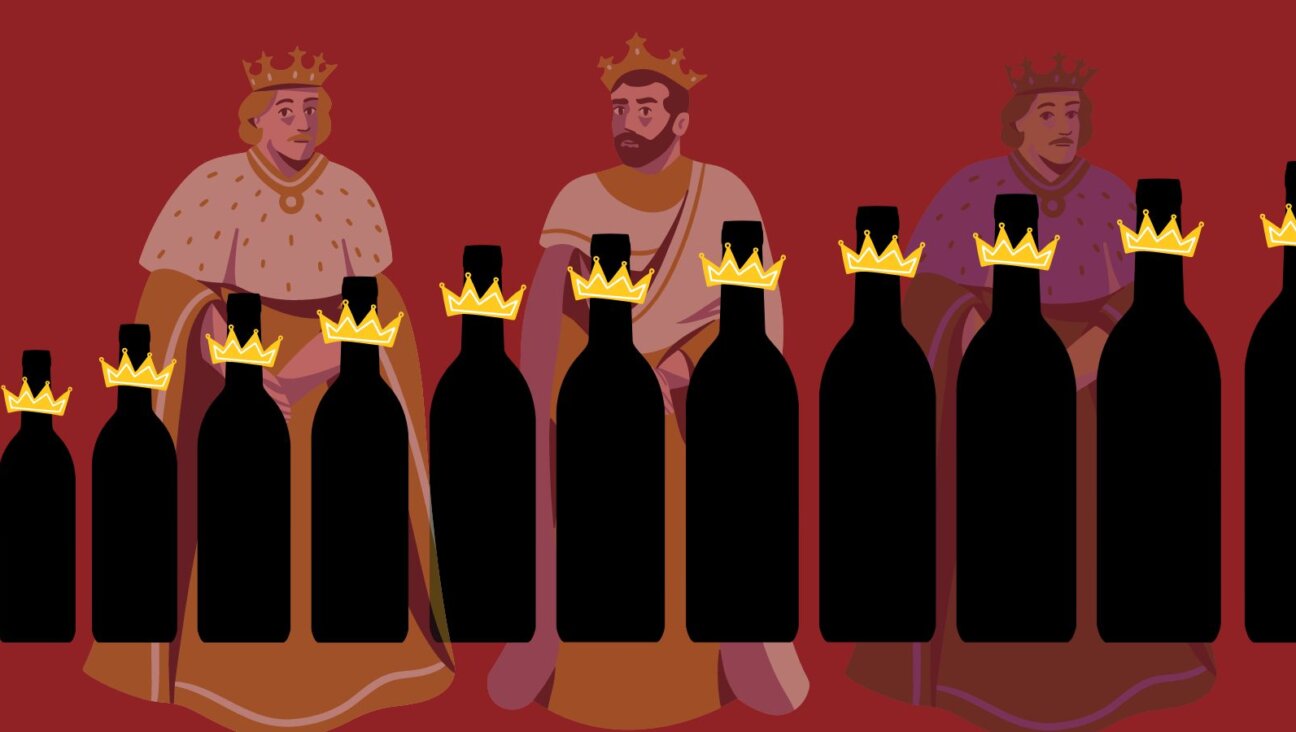Up and Down, Over and Out
Both Beautiful and Bewildering, Naama Goldstein’s Style Is Undeniably Original
The Place Will Comfort You
By Naama Goldstein
* * *|
In her debut collection of short stories, “The Place Will Comfort You,” Naama Goldstein explores the emotional effects of displacement from American to Israeli culture and back again. As an epigraph and symbol for the constant flux of migration to and from Israel — the shuffle of ideologies and practicalities played out by a few thousand migrants each year — Goldstein chooses the verses from Genesis 28, in which Jacob dreams of a ladder standing on the ground, reaching up to the sky, with “angels of God ascending and descending on it.”
It’s a clever allusion, playing on Goldstein’s Orthodox upbringing and on aliyah (ascent) and yeridah (descent), the vertically oriented Hebrew terms for Israeli immigration and emigration. And it suggests the enormous challenges the author perceives in moves between these dissimilar cultures. One traditional interpretation of Jacob’s dream is that the guardian angels who protected him in the Holy Land trade off with a second crew who watch over him in the Diaspora: In other words, entering or leaving Israel is so fraught with hazards that even God’s messengers won’t risk it.
Place figures prominently in each of the tales, but the book’s title drips with irony, as none of the locales described — the suburbs of Jerusalem, a classroom in New York, an out-of-season tourist town on Cape Cod — offers the slightest comfort. The title phrase is also, of course, a literal translation of the consolatory greeting traditionally spoken at a Jewish house of mourning, and Goldstein’s use of these words as an umbrella over her fiction hints at her interest in the grief that comes with the loss of one’s home.
The first half of the collection, “Olim (Ascending),” includes five stories set in Israel with mostly American-born schoolgirls at their centers. These young women react ambivalently to the pull of American culture and their status as its representatives. When the narrator of “The Conduct for Consoling” is told by an Israeli classmate that “Americans are fat,” she becomes disappointed and defensive: “I thought she liked Americans. I thought she loved our cakes.” And the protagonist of “Pickled Sprouts” is mortified that her mother insists she carry an American-style lunchbox when none of the other kids carries one.
Still, while they stand out as foreigners, for these girls and their Orthodox families, life in Israel promises religious depth. “You look out your window in the morning,” one girl claims, “your eyes might hit on the exact spot where Hannah prayed for a son. Hang your laundry, the wind on your clean sheets is also stroking the same ground where Eli the Priest lay his head at night.”
Ultimately, though, Goldstein’s stories suggest that there’s not much difference between such dreamy visions of treading in the footsteps of the patriarchs and the laughable American tendency to view Israel as a religious theme park. In “A Pillar of Cloud,” Goldstein pokes fun at the latter with Tiffy, a bubbly American relation staying with a family of American immigrants on her first visit to the Holy Land. “Oh God,” she says. “Can I just tell you real quick about my plans? I am on such a high. I have to see Masada, that I know, the Wailing Wall and David’s Tower, Yad vaShem, Tiberias, the Dead Sea. All of those names! I can’t believe they’re going to come alive…. Someone pinch me.”
Unsurprisingly, the story focuses on Tiffy’s cluelessness: She believes she can help out by giving the children eyeglasses and inviting an Arab workman for dinner, but she’s only meddling in things she doesn’t understand. And by midway through the collection, one begins to feel that those who intend to immigrate permanently end up even more disappointed than misguided temporary visitors like Tiffy. At least the tourists don’t expect to fit in.
The second half of the book, “veYordim (And Descending),” is made up of three stories set in America and featuring older characters who have returned to America, but are by no means at peace with or ready to forget their sojourns in the Middle East. In “Anatevka Tender,” a mother asks herself, “What right had she 12 years ago to decide that Yitz” — her son, a veteran of the war in Lebanon — “would be a boy of Israel?” When another character is asked, “Why did your family descend?” she says, “Am I supposed to be able to explain it?… In that case, all right. We were never sufficiently absorbed.”
This response is deliberately vague, and, though she surveys the difficulties of Israeli life that linger in their memories, Goldstein never explains exactly why her characters couldn’t handle the challenges as well as any other immigrants. Yet there’s a clue in the book’s language. Absorption requires a desire to assimilate, a willingness to blend in, and Goldstein’s prose suggests an unwavering opposition to anything resembling normalcy. Her characters are such outsiders that they can’t speak or be described with regular language.
Goldstein’s distorted diction and syntax, natural neither to the rhythms of English nor Hebrew, can be beautiful and bewildering. While not as fluid or humorous as the work of some other immigrant writers who tap-dance on linguistic fault lines — like Aleksander Hemon, the gifted Bosnian-American author — Goldstein’s style is undeniably original. It may delight readers familiar with the speech patterns of quasi-bilingual Hebrew/English speakers. Too often, though, Goldstein’s unusual style obscures more than it reveals.
In one small but representative example of her prose, Goldstein writes, “The breath from me grays up the window.” “Gray” is a visual and unusual synonym for “fog,” and an example of innovative word selection. But “the breath from me” adds no nuance that wouldn’t be present in “my breath”; it’s unconventional for the sake of unconventionality. As such choices add up over paragraphs and pages, the prose feels willfully strange — often to the point of estranging the reader.
This aggressively unsettling style bleeds into the characters’ spoken dialogue, too, which at its best resembles the sawed-off sentences of David Mamet. At its murkiest, the dialogue could be the chatter of space aliens. Are there really mothers who, defending their children’s eyesight to an overzealous optometrist, would utter aloud an English sentence like, “The annual school psychometric test proves preternaturally astute spatial perceptions”?
Goldstein’s concern isn’t believability or readability, but the sort of linguistic defamiliarization the Russian formalists applauded and at which bilingual authors are particularly adept. An admirable artistic achievement, “The Place Will Comfort You” offers unique insight into a tiny slice of the Jewish population. Yet, while Goldstein’s prose style impressively communicates the alienation experienced by her culture-shocked characters, in doing so, it also may alienate readers.
Josh Lambert’s reviews have appeared recently in the San Francisco Chronicle and the Jerusalem Post.
Scribner, 224 pages, $22.

I hope you appreciated this article. Before you go, I’d like to ask you to please support the Forward’s award-winning journalism this Passover.
In this age of misinformation, our work is needed like never before. We report on the news that matters most to American Jews, driven by truth, not ideology.
At a time when newsrooms are closing or cutting back, the Forward has removed its paywall. That means for the first time in our 126-year history, Forward journalism is free to everyone, everywhere. With an ongoing war, rising antisemitism, and a flood of disinformation that may affect the upcoming election, we believe that free and open access to Jewish journalism is imperative.
Readers like you make it all possible. Right now, we’re in the middle of our Passover Pledge Drive and we need 500 people to step up and make a gift to sustain our trustworthy, independent journalism.
Make a gift of any size and become a Forward member today. You’ll support our mission to tell the American Jewish story fully and fairly.
— Rachel Fishman Feddersen, Publisher and CEO
Join our mission to tell the Jewish story fully and fairly.
Our Goal: 500 gifts during our Passover Pledge Drive!
























